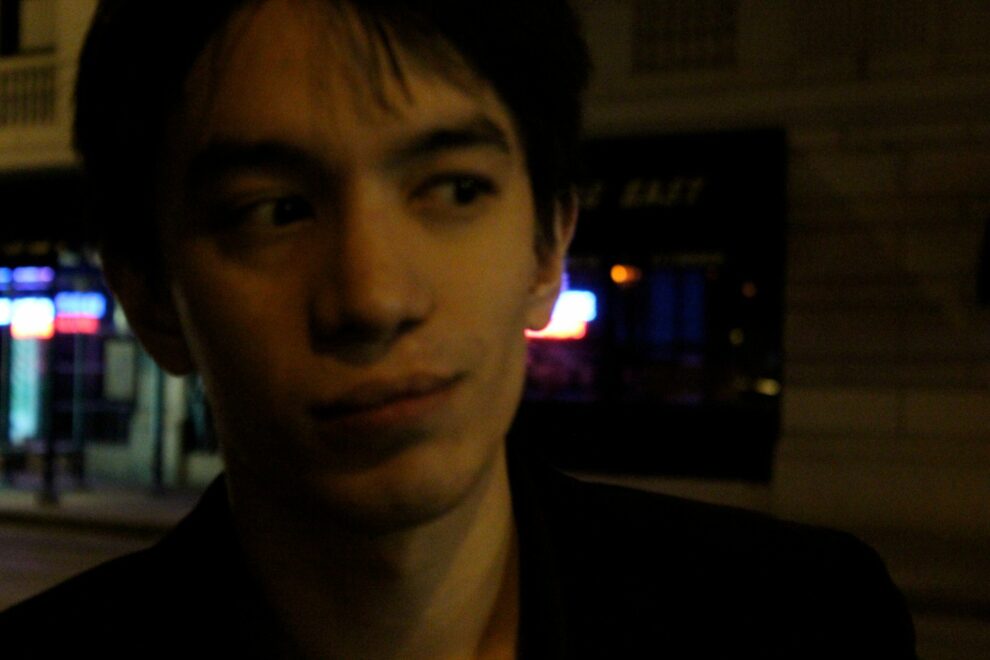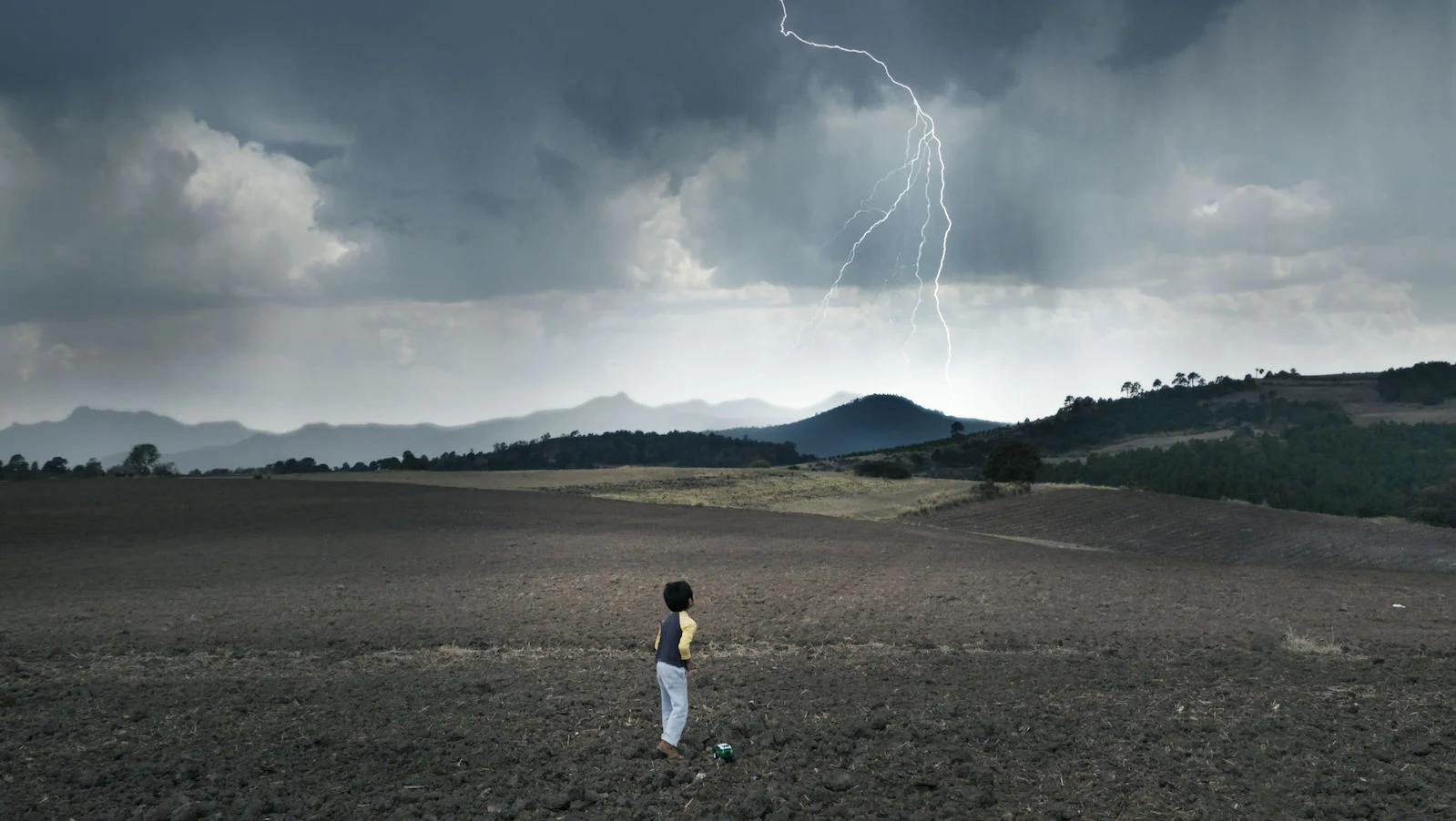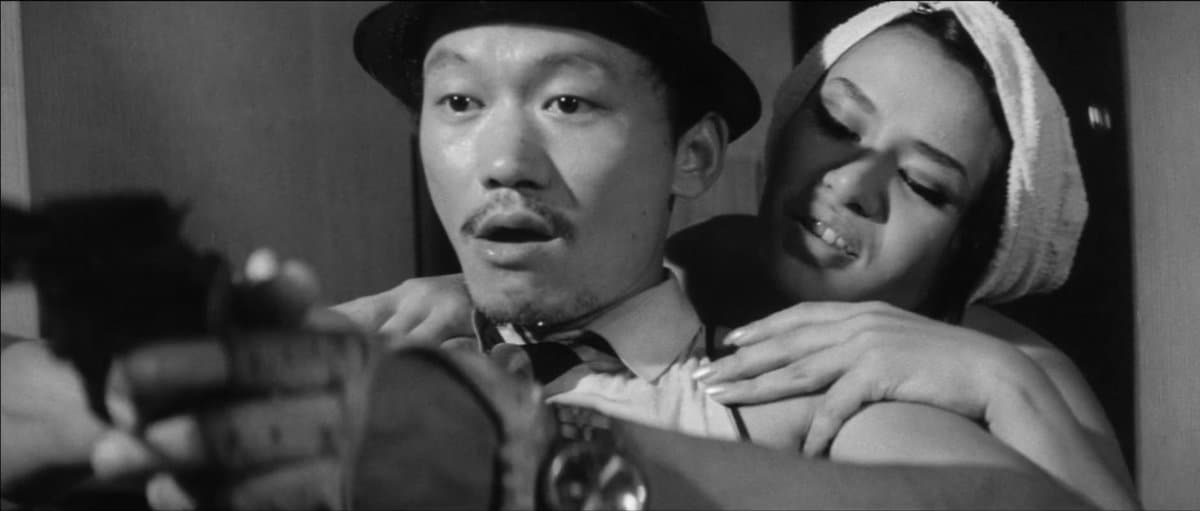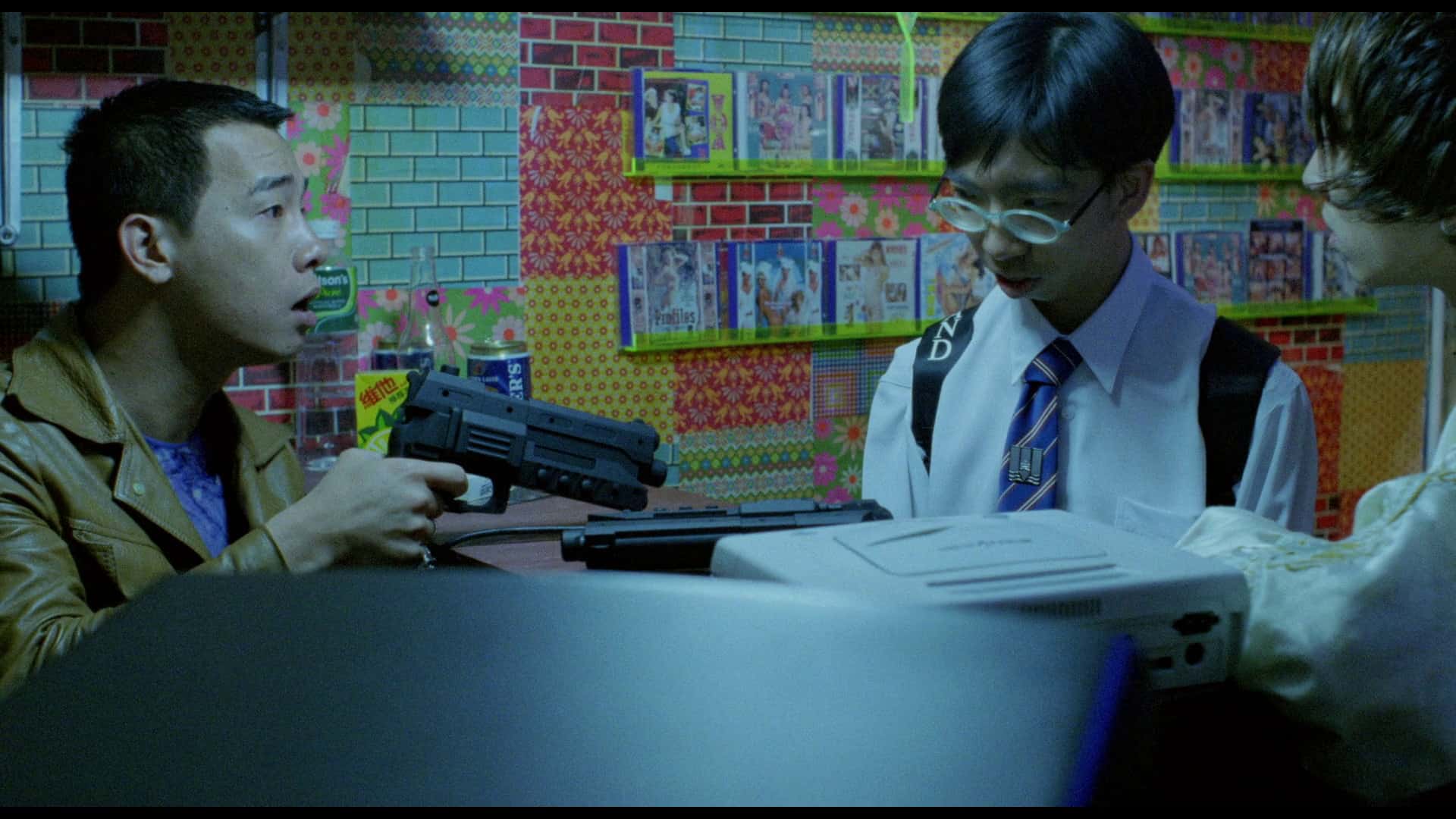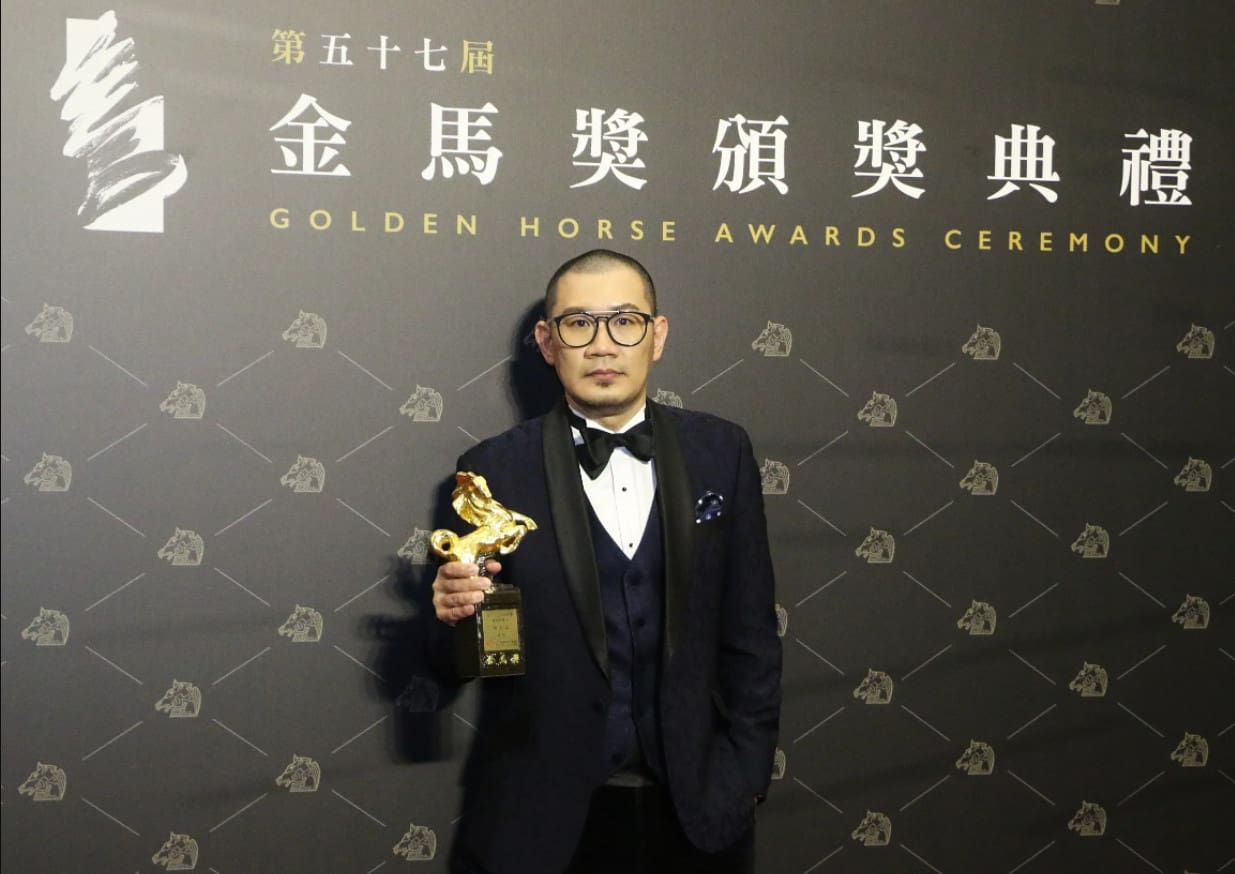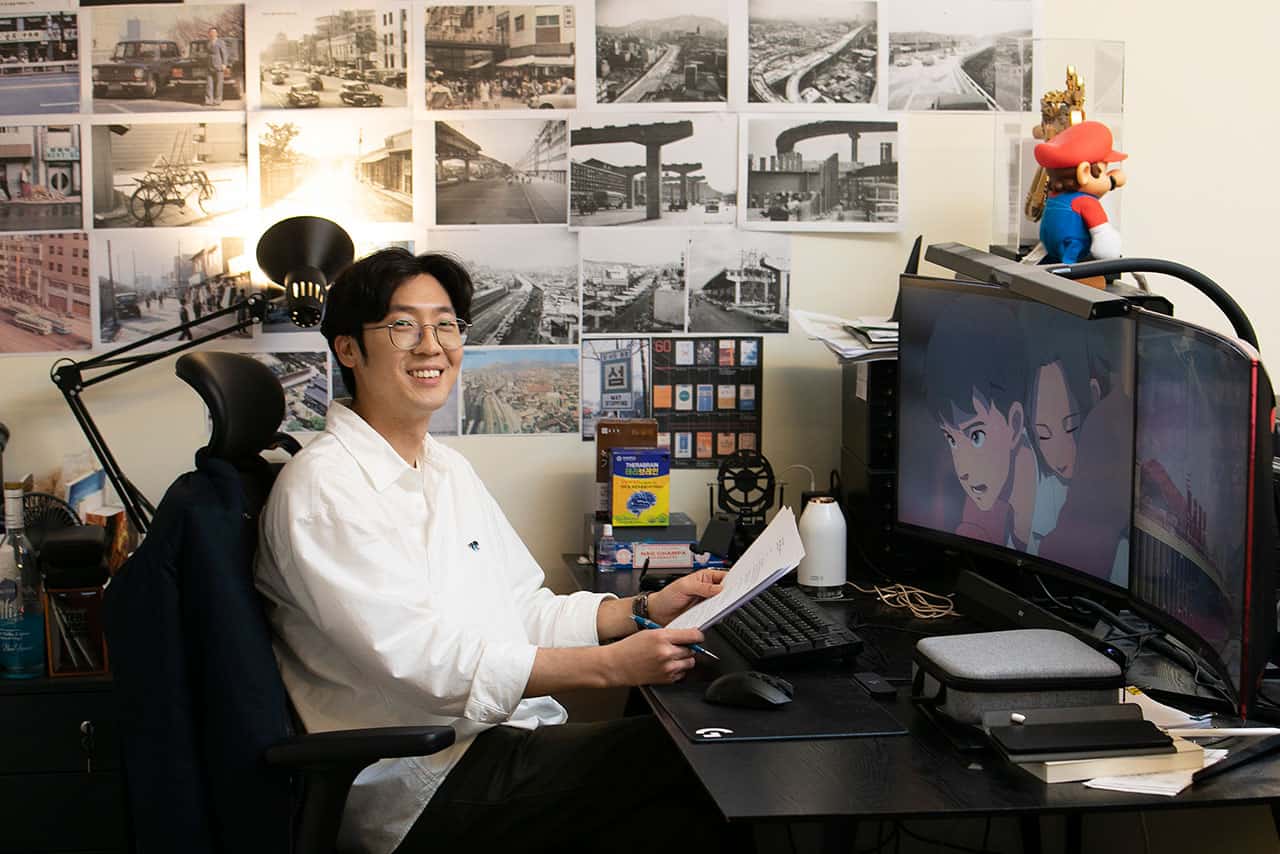First Look, Museum of the Moving Image's annual festival for cutting-edge new cinema, returns next week for their 13th edition. This year's five-day event includes 20 features representing 21 countries, and many of them from Asia – including “Achilles” (Farhad Delaram, Iran), “Self-Portrait: 47 KM 2020” (Zhang Mengqi, China), “Mimang” (Kim Taeyang, S. Korea), and more. Beyond the traditional cinema, this year's video installation in the Amphitheater Gallery also features an Asian diaspora video artist, Fiona Tan, with her 97-minute video installation, “Footsteps.”
In reflection of this year's selection, we had the opportunity to speak to Edo Choi, MoMI Associate Curator of Film and First Look Senior Programmer. Choi also frequently contributes as a freelance critic and projectionist, with pieces in Reverse Shot and Film Comment. This time around, over Zoom, we talked about what it takes to get on the First Look slate and some personal highlights from the program.
This interview has been edited and redacted for clarity.
This year marks the 13th edition of “First Look.” What's similar and what's different?
Edo Choi: We're meant to be a broader survey of different kinds of film that are presented at festivals over the course of the year. One of the distinguishing features of this year that I was particularly impressed by is the strength of the Asian films. It leapt out at me that the films from East Asia this year are particularly strong. We don't want to underemphasize or overemphasize a particular region of work or kind of work, whether that is documentary or fiction, or a film that leans more experimental or traditional. But on the whole, I was impressed by the quality of work that we got to choose from.
I'm very excited about, for instance, the two East Asian films that we're premiering – [Kim Taeyang's] “Mimang”, a fiction film by a debut filmmaker, and an established documentary filmmaker, Zhang Mengqi [with “Self-portrait: 47KM 2020”]. It really speaks to the breadth of what we try to do, with work by younger and emerging artists and by veterans; with documentary and fiction.
So much of the program is “Asian,” but a lot of focuses on themes of being “transnational” as well – like the work of Simon Liu (“Single File”), Faraz Fesharaki (“What did you dream last night, Parajanov?”), or the exhibit on Fiona Tan.
That's the point. We want to be a festival without borders – borders in a literal and formal, stylistic sense. We want to be a festival that poses a new, fresh set of ideas about what cinema might be.
Did you fight for any particular film to be included in the program?
We're a very small team. We're not a committee festival, and we don't have a large enough weight or footprint for that to make sense. It's three people – Eric Hynes [MoMI Curator of Film and First Look Artistic Director], Sonia Epstein [Curator of Science and Technology and First Look Film and Exhibitions Programmer], and me. If one of us really, really loves the film, then we're inclined to go for it. We don't want to be a festival that's calculated in selection, or programming by quota, or some artificial understanding of what we want to represent in a given year.
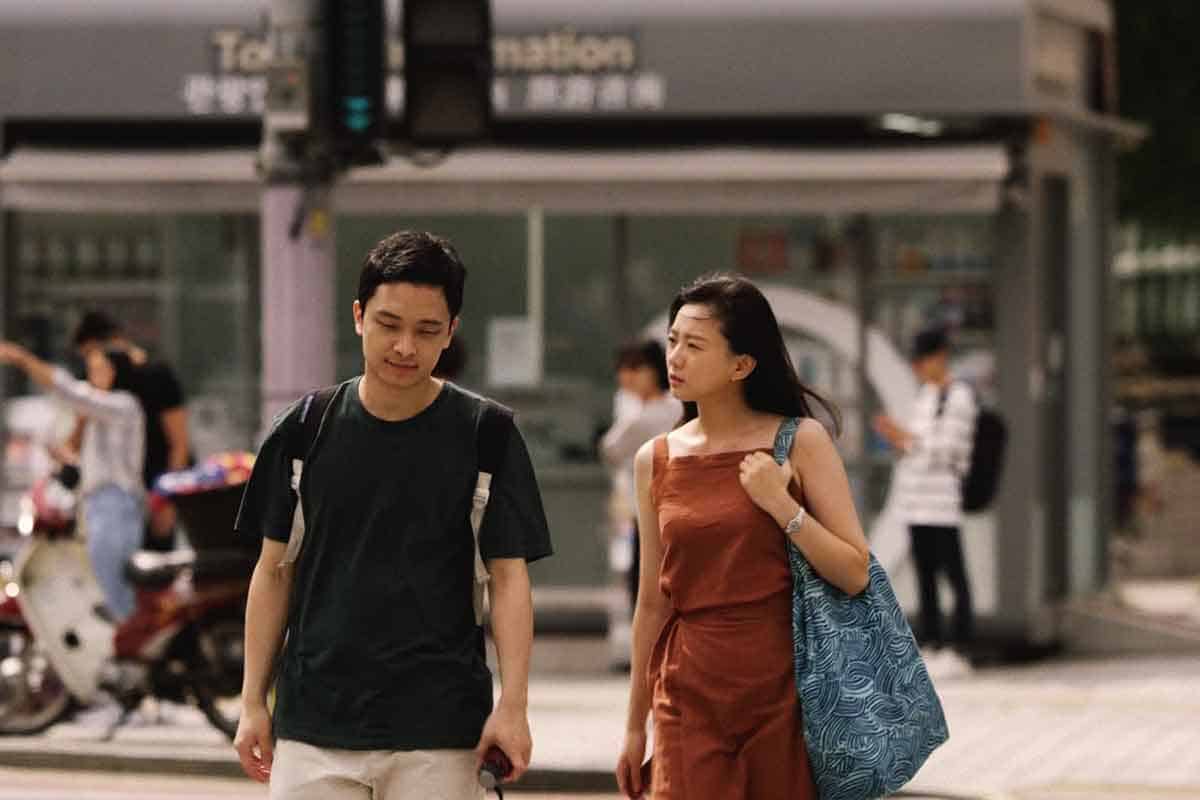
Have last year's strikes in Hollywood had any effect on the programming?
I don't think so. Most of these films aren't union productions because they're not a high-enough budget, or they're made outside that system. These are as independent as independent film could get. I just think this is a very good year for Asian cinema. And the festival represents that. There were also quite a few East Asian films that I was really, really in love with that we didn't end up programming. That just speaks to the strength of the year and the amount of talent out there.
I've also noticed that some of your selection comes from festivals as recent as Berlinale 2024, which was only a few weeks ago.
That's how it is. We're a festival of festivals. We don't have a large-enough apparatus or bureaucracy to be able to process and review submissions; that would be overwhelming, especially as all of us are year-round programmers. We're looking at the lineups of festivals we respect, paying close attention to films well-received by our colleagues and peers – like programmers and critics on-the-ground. We also see a lot of the films ourselves. That's how the sausage gets made.
“First Look” also has a local note, bringing all these films from around the world to New York.
All festivals are local festivals. We are a festival designed for cinephiles in New York, who are savvy and curious and adventurous, who will appreciate discovery. When we're assembling the selection, it has to feel like a discovery of some way.
The content of the Asian selection seem to reflect this theme of “discovery,” but also of “rediscovery” too — like “Mimang” contemplating upon how Seoul and its characters change over time, or “Footsteps,” which meditates upon Tan's revisitation of a personal and national film archive.
Yes, “Mimang” is very much about finding a place and reacquainting yourself, and getting back in touch with a version of yourself. We're glad to have that filmmaker with us.
Who else is coming?
Nearly all the feature filmmakers will attend the festival this year. In addition to discovery and innovation, the other real emphasis is fostering a sense of community at First Look. It's really, really important for us to bring filmmakers to the festival. We want to put together a selection of films that will enable as complete participation as possible. This year, we might be setting a record for the number of live participants.
This word that you just introduced – “innovation” – is interesting, especially in today's climate of AI and film. Much of this year's Sundance slate, for example, had been dedicated to innovative techniques to think about digital cinema, but First Look seems to shy away from that.
We're not really interested in the advent of new technologies in and of themselves. We're interested in where the filmmakers take these innovations. We're interested in the basic formal innovation of the filmmaker, which may be premised, but does not necessarily need to be premised by the technology. For instance, there's this Malagasy filmmaker, Michaël Andrianaly, who will receive True/False [Film Fest's] True Vision Award this year, which is an honor for a mid-career achievement. Michaël's [work] speaks to the really high level of achievement that he's already displayed. The film he has this year is called “Gwetto,” which is about a group of young migrant workers who work at a car wash in one of Madagascar's busy metropolises. It's a traditional cinéma vérité film, but it's so well done. He manages to give you an impression of these men's day-to-day lives in just about 50 minutes.
It's not about reinventing the wheel, but about honing and refining that form. We don't get seduced by something that is fashionable or feels superficially new. To me, innovation is not just on the surface-level, but on the detail and nuances of expression that a filmmaker brings to their work. Subtle things, like camera position, sense of rhythm, composition – these are the mark of a good artist.
And finally: Do you have a film you are looking forward to the most?
I can't say that. (laughs)
I can say, though, that am very, very excited to have Zheng Mengqi's “Self-portrait: 47KM 2020” because I am a great admirer of her work. The film is a culminating chapter of a much longer project, with films about her ancestral village from over a decade now. And this is the most ambitious edition yet. It's over 3 hours long, and it's a record of the year of COVID in the life of this village – from January 2020 to January 2021. It reminds me of Renaissance landscape painters, like [Pieter] Bruegel and traditional Chinese handscroll paintings. It has a pastoral, pictorial breadth while also being down-to-earth. It also has this degree of specificity; you could probably learn how to plant rice while watching this movie. It's exactly the kind of film we like at First Look. It's impressive because of the secretion of very finely observed details.
First Look will run from 13-17 March, 2024 at the Museum of the Moving Image, New York, NY. You can find the full program and tickets here: https://movingimage.org/series/firstlook2024/


